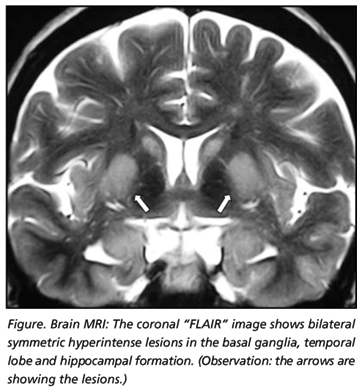Hyponatremia is a significant complication of treatment with serotonin selective reuptake inhibitors (SSRI). We describe a case of a 53-year-old woman that was started on fluoxetine 20 mg/day for depression. Nine days later, the patient started with weakness, nausea, progressing to confusion, inapetence and vomit. Three hours later she became unresponsive and had a generalized seizure. She was brought to our emergency service. On admission, the patient was normovolemic, without focal motor deficits, but had mild generalized muscle rigidity and Babinski's sign bilaterally. Serum sodium was 105 mmol/L, serum osmolality, 220 mmol/L, and urinary osmolality, 400 mmol/L. The other laboratory exams, chest X-ray, cerebrospinal fluid and cranium tomography were normal. She was found to have fluoxetine-induced SIADH and it was descontinued. We started the hyponatremia correction and, in 5 days, the mental status of the patient gradually returned to a normal baseline, paralleling the resolution of her hyponatremia, without recurrence. Hyponatremia and SIADH should be considered if a patient experiences deterioration in his or her clinical condition while taking SSRI. The use of SSRI antidepressants should be remembered in the differential diagnosis of drug-induced hyponatremia.
antidepressive agents; fluoxetine; inappropriate ADH syndrome



